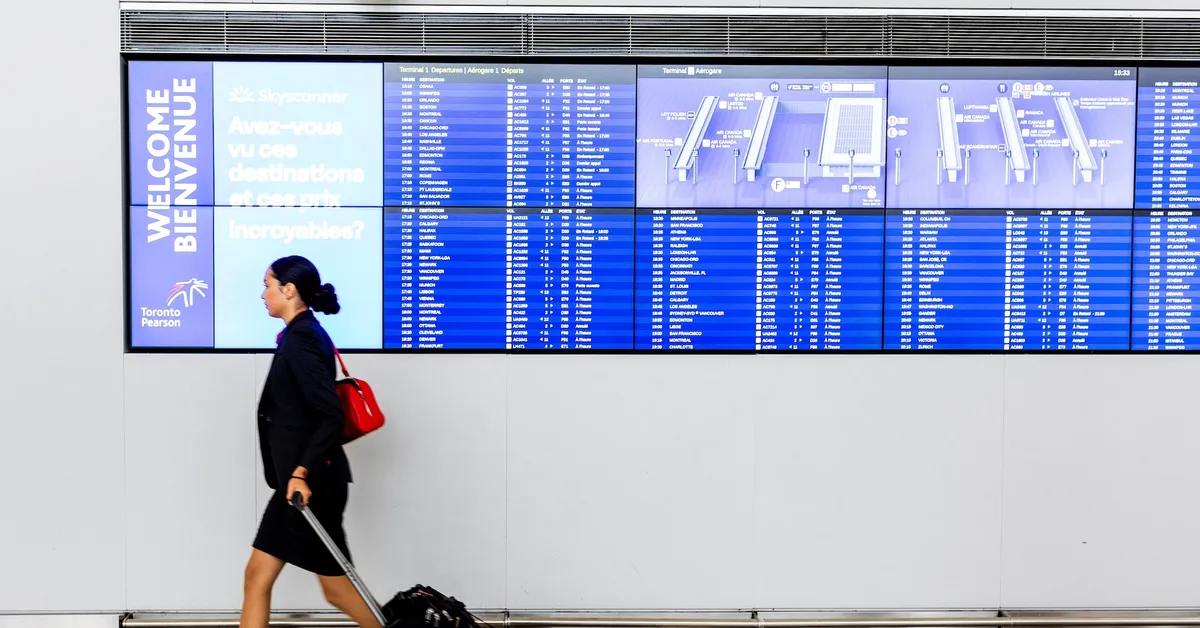
The union representing over 10,000 Air Canada flight attendants announced on Tuesday that they have successfully reached a tentative deal that puts an end to unpaid work. While specific details of the agreement were not disclosed, the implications of this deal are significant, particularly for upcoming contract negotiations across North America. Analysts suggest that the outcomes of this agreement could influence labor discussions in the airline industry at large.
As the airline industry is known for its cyclical nature, the newfound agreement could potentially increase structural costs. Labor accounts for the largest operating expense for airlines, second only to fuel costs. The Chicago-based airline's union is currently surveying its members in preparation for returning to negotiations in December. Neither United Airlines nor its union representatives offered immediate comments regarding the deal.
While cabin crews receive compensation for a minimum number of hours worked, they are primarily paid only when planes are in motion. This practice overlooks vital responsibilities performed during boarding, deplaning, and other ground operations, leading to what unions argue is substantial unpaid labor. In previous contract negotiations, airlines often secured concessions from their workers during periods of economic downturns or due to challenges posed by the pandemic.
However, current factors such as rising inflation, stagnant wages, and increased workloads have caused growing discontent among flight attendants, intensifying demands for changes in pay practices. Sara Nelson, the international president of the Association of Flight Attendants-CWA, noted that the Air Canada strike has broader implications for negotiations across the industry. "It defined the problem of ridiculous expectations for flight attendants to work without pay," Nelson stated, emphasizing the inspiration the striking flight attendants provide to workers everywhere.
In a recent discussion, Nelson spoke with Wesley Lesosky, the leader of Air Canada's flight attendants union, to coordinate their positions. Shanyn Elliott, an Air Canada Rouge flight attendant and head of the strike committee, shared her experiences from when she joined in 2017. She highlighted that her C$23 ($16.60) hourly wage was insufficient to meet living costs, prompting her to pick up long-haul flights for extra pay. She also expressed frustration over frequent flight delays post-pandemic, which have led to longer working hours.
Air Canada CEO Michael Rousseau acknowledged the need for the airline industry to reassess its compensation models. In an interview, he indicated that the Canadian airline has embraced the concept of ground pay, suggesting that other airlines may soon follow suit. "We all should be open to change," Rousseau remarked, highlighting the necessity for industry-wide adjustments.
Notably, airlines like American and Alaska have already initiated compensation for attendants during boarding times in their recent labor agreements. American Airlines has also begun compensating its flight attendants for certain hours between flights.
Implementing compensation for boarding and ground time could lead to increased operational costs for airlines. For instance, the new flight attendant contract at American Airlines is projected to add an additional $4.2 billion to its expenses over the next five years. Last month, the airline attributed part of its margin underperformance to heightened labor costs.
Analyst Matthew Lee from Canaccord Genuity estimates that the proposed wage increases at Air Canada could result in up to C$140 million in additional costs. Since the beginning of the pandemic, Air Canada's wage expenditures have surged by approximately 26%. The airline is currently facing challenges, including weak passenger traffic to the U.S. due to strained trade relations, leading to a nearly 40% year-on-year decline in quarterly profits.
However, industry experts caution that maintaining strict cost control could jeopardize industrial peace. John Gradek, a faculty lecturer at McGill University specializing in supply networks and aviation management, noted, "The movement is on," indicating a significant shift in labor dynamics within the airline sector.